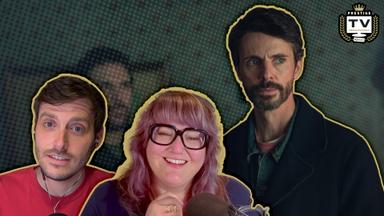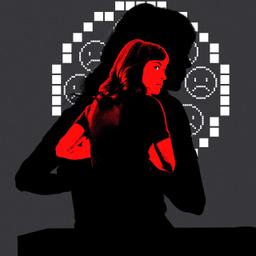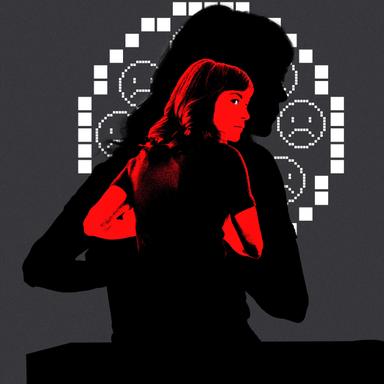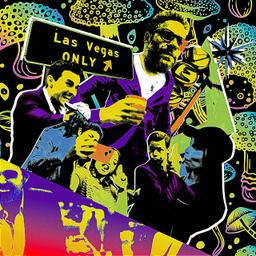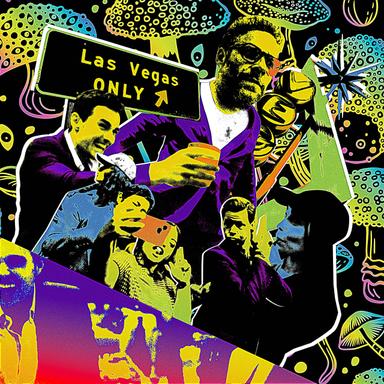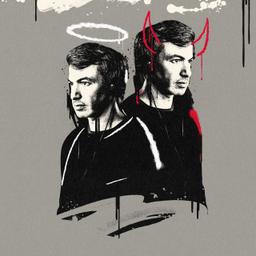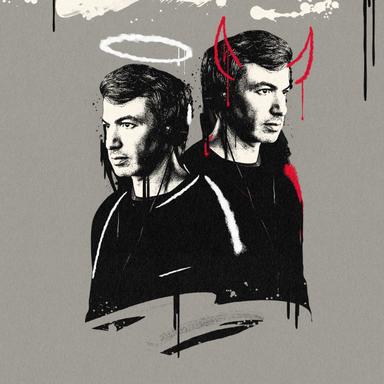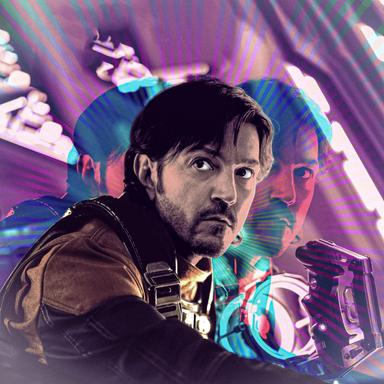If there’s one thing that’s defined television in the first half of 2025, it’s that hit shows as wide-ranging as Severance, The White Lotus, and Andor weren’t hindered by strike-induced production delays; instead, absence made their fandom’s hearts grow fonder. Additionally, there have been new series just as worthy of our time, whether it was a razor-sharp Hollywood satire or an anxiety-inducing medical drama. For all that and more, check out The Ringer’s best shows of 2025 so far.
10. The White Lotus
The third season of the HBO anthology series The White Lotus had its fair share of detractors who found fault with its languid pacing and trigger-happy finale. To which I say: Even a lesser season of Mike White’s opus is better than damn near everything else on television. As The White Lotus moves to Thailand, all the familiar ingredients remain in place: über-wealthy guests trying to throw money at all their problems, an incident on hotel grounds that leads to a body count, hapless workers sometimes literally getting caught in the crossfire. Striking a balance between provocative and profound—best encapsulated by Sam Rockwell’s god-tier monologue in the fifth episode—The White Lotus uses its Eastern setting to explore a very Western kind of spiritual malaise, and how clinging to a fixed identity leads to more suffering. Once again, the show’s A-list ensemble delivers the goods, and some up-and-comers announce themselves in the mainstream. (Sam Nivola, Sarah Catherine Hook, Patrick Schwarzenegger … we will watch your careers with great interest.) Was Season 3 a perfect stay at The White Lotus? Perhaps not, but it was still a rich experience in more ways than one. —Miles Surrey
9. Common Side Effects
Late last year, animation maven Joe Bennett confirmed that the criminally underseen Scavengers Reign, one of our favorite shows of 2023, would not be receiving a Season 2. Sadness ensued. But a few months later, so did a spiritual sequel: Common Side Effects, which, like Scavengers Reign, was cocreated by Bennett and animated by the company he cofounded, Green Street Pictures. The new sci-fi series, which aired on Adult Swim and streamed on Max, takes place on our planet, but it’s just as trippy as its interplanetary predecessor. The series revolves around Marshall Cuso, a well-intentioned, antiestablishment loner who’s trying to cultivate a kind of mushroom that can heal any illness or wound—or even, under some circumstances, bring people back from the dead. Nefarious forces scheme to stop him from destabilizing the status quo, which may be for the best: However righteous Cuso’s cause, his cure-all could have unintended, disastrous consequences. Common Side Effects is equal parts utopian and poignant, sentimental and cynical, playful and profound. It’s almost as if one of Marshall’s miraculous mushrooms resurrected Scavengers Reign—but this time, the series secured a second season. —Ben Lindbergh
8. Paradise
An unexpected hit, Paradise came out of nowhere, slinging twists, turns, and the occasional (and equally unexpected) perfect hour of television, all centered around two of the best on-screen performers Hollywood’s got. Seriously, did anyone know that James Marsden was about to play the president of the United States, with Sterling K. Brown as his head of Secret Service (with a few secrets of his own, of course), before Paradise dropped on Hulu? With those kinds of acting chops, this frothy political thriller didn’t need to take itself too seriously. Paradise’s twists are a little campy, and its side characters are a little one-note at times, but its concept is sturdy, and its narrative efficiency makes getting on board this dystopian ride as easy as paying for a drink with the mysterious bracelets we find everyone wearing in the pilot. Plus, the actors at its center are mesmerizing together (and not just because of their handsome faces—but also not in spite of them!). And then comes Episode 7. After easing us into the steady cadence of a juicy mystery, series creator Dan Fogelman gives us an end-of-the-world hour so visceral, so action-packed, so emotionally compelling that a more fainthearted writer would have stretched it into an entire series. In its tight eight-episode run, Paradise manages much more than just the end of the world. —Jodi Walker
7. Dept. Q
British detective mystery series aren’t exactly uncommon. They can often be a bit formulaic, and therefore predictable, yet there can be something comforting about them for that reason—even when the subject matter isn’t. But every now and then, a new series comes along to subvert that formula and remind us why this TV genre is so popular in the first place.
Based on Danish author Jussi Adler-Olsen’s crime novel series and developed for TV by Scott Frank (The Queen’s Gambit) and Chandni Lakhani (Vigil), Dept. Q follows ace detective Carl Morck (Matthew Goode) as he leads a new police department that investigates cold cases. This is, of course, all while the sardonic cop tries to deal with nearly dying in a shooting that begins the series. The nine-episode season is sleekly shot and cleverly told, with a gripping story and quirky ensemble that both only get better as the drama grows. Dept. Q manages to draw you in from the opening episode with a clever closing twist, making it perfect for your next binge watch on Netflix. —Daniel Chin
6. Severance
Better late than never: After almost three years off the air, Apple TV+’s Severance finally returned for its second season. That’s a long layoff for any series to endure—let alone a mystery-box thriller—but Severance didn’t skip a beat. (Same goes for the marching band.) After introducing viewers to employees who elected to be “severed”—splitting their consciousness between their lives at the office (innies) and at home (outies)—Season 2 delves deeper into the inner workings of the mysterious Lumon Industries and what, exactly, the company stands to gain from creating this procedure. Meanwhile, our protagonist Mark (Adam Scott) pushes ahead with the potentially dangerous process of reintegrating his outie and innie selves. Episodes centered on a bizarro corporate retreat and the backstory of Mark’s wife, Gemma (Dichen Lachman), who has no recollection of her life outside of Lumon, are particular standouts, but on the whole, Severance gets top marks for its production design, performances, and world-building. As we look ahead to Season 3, Severance remains mysterious and important television. —Surrey
5. The Studio
As someone who writes about pop culture for a living, Apple TV+’s glitzy industry satire, The Studio, was always going to be an easy sell. Following Matt Remick (cocreator Seth Rogen), the newly installed head of the fictional Continental Studios, the series touches on issues near and dear to Hollywood: studios single-mindedly fixating on IP, artificial intelligence taking work away from artists, executives not being thanked by talent during acceptance speeches (unless you're Ted Sarandos). Combining Curb Your Enthusiasm's cringe comedy with the long, unbroken takes associated with prestige films like Birdman, The Studio holds real affection for the art of moviemaking even as it intimates, with every hilarious misstep by the characters, that we’re looking at an industry in crisis. (Case in point: Matt trying—and failing—to turn Martin Scorsese’s Jim Jones biopic into a Kool-Aid movie.) That a sardonic love letter to cinema happens to be financed by a tech company is the ultimate punch line. —Surrey
4. Adolescence
The story of a 13-year-old boy who’s accused of murder—and the family that’s forced to reckon with where he, and they, went wrong—Adolescence is hard to watch, and just as hard to stop watching. It was hard to make, too: Each hour-ish installment of the four-episode miniseries was filmed in one continuous shot, a cinematographic feat rivaled by the prowess on display in front of the camera. (I can’t imagine summoning so much sincere-seeming emotion while hitting so many marks during each of the 10-plus takes per episode.) Few works of fiction present their protagonist as so sympathetic and so scary, depending on the episode and scene. Of course, this work was heavily informed by actual events, which could have made the series land like an afterschool-special-style stunt in less skilled hands. Adolescence made me happy to have grown up before smartphones, social media, and the “manosphere,” and afraid for those who have to navigate the dystopian pitfalls of modern-day youth. Not that coming of age at any age is easy. —Lindbergh
3. The Pitt
If it ain’t broke, don’t fix it. The medical melodrama led by a coterie of grizzled oldsters and shiny-eyed rookies was never broken … and The Pitt didn’t aim to fix it. Creator R. Scott Gemmill and executive producer (and star!) Noah Wyle simply took a defibrillator to the heart of what people still long for in their television shows: a balanced diet of episodic and serialized storytelling, released at a weekly clip, in a long enough season to draw in viewers and build word-of-mouth enthusiasm. The show is livened up by its real-time “live from the emergency room, it’s the most stressful 15-hour shift of your life” episode structure, propelled forward by harrowing and occasionally comedic medical crises, and anchored by lived-in performances from—actually, I won’t even attempt to choose a handful of actors to spotlight; they’re all great. The very best part of The Pitt was meeting its dynamic cast, filled out almost exclusively with names you’ve never heard of and with faces you won’t soon forget, because (a) they’re gorgeous, and (b) they’re about to be everywhere. Sound familiar? Audiences arrived in the TV emergency room with streaming fatigue and a stomachache from Netflix bloat and left (after several hours in the waiting room) with an HBO prescription in hand for Season 2, which will hit our screens exactly a year after Season 1 premiered. It’s good to be Pitt-pilled. —Walker
2. The Rehearsal
It’s no easy task encapsulating The Rehearsal within the span of a couple hundred words—or any number of words, really. Nathan Fielder’s HBO series is part comedy, part reality TV, and part performance art, all wrapped up in one deeply uncomfortable yet mesmerizing viewing experience. And with the Canadian comedian (and licensed commercial pilot) using Season 2 to focus on an investigation into the urgent topic of aviation accidents, Fielder takes The Rehearsal to absurd new heights.
Fielder goes to extraordinary lengths to test his theory that most fatal airplane crashes that you’ll too often read about in the news occurred as a result of poor communication between pilots in the cockpit. Across six episodes, his research leads him to everything from using actual pilots as the judges of a fake singing competition (that the contestants believe is real) to recreating the childhood of Captain Chesley “Sully” Sullenberger to Fielder piloting a full flight in a Boeing 737 himself. There’s always a tinge of uncertainty over whether what’s unfolding onscreen could actually be real—and that’s part of the indelible beauty of this gloriously bizarre and ethically murky series.
It’s hard to say whether there’ll ever again be anything on TV quite like The Rehearsal’s second season. But maybe that’s just because the series hasn’t been renewed—at least not yet. —Chin
1. Andor
Andor’s audience didn’t grow in its second season—which means way too many TV viewers missed the leader in the clubhouse for the best show of the year. Even if the Nielsen numbers were no bigger, the budget and the expectations were. But Andor’s creative direction didn’t disappoint. The series served its ensemble of war-weary characters, delivered a perceptive and inspiring commentary on current events, and seamlessly segued into the preestablished Star Wars timeline—sending fans flocking to Rogue One and Battlefront II for a post-finale fix. There may be a yearlong live-action lull between the end of Andor and the premiere of The Mandalorian & Grogu, which is fortunate for Lucasfilm: I wouldn’t want to be the one who has to follow up the finest Star Wars since the original film series—if not the new artistic standard for the franchise. Heck, in some circles, it’s the standard for any IP project that aspires to prestige status. If you’re trying to tell a genre story that elevates, subverts, and transcends its source material, and your name isn’t Tony Gilroy, good luck. —Lindbergh







